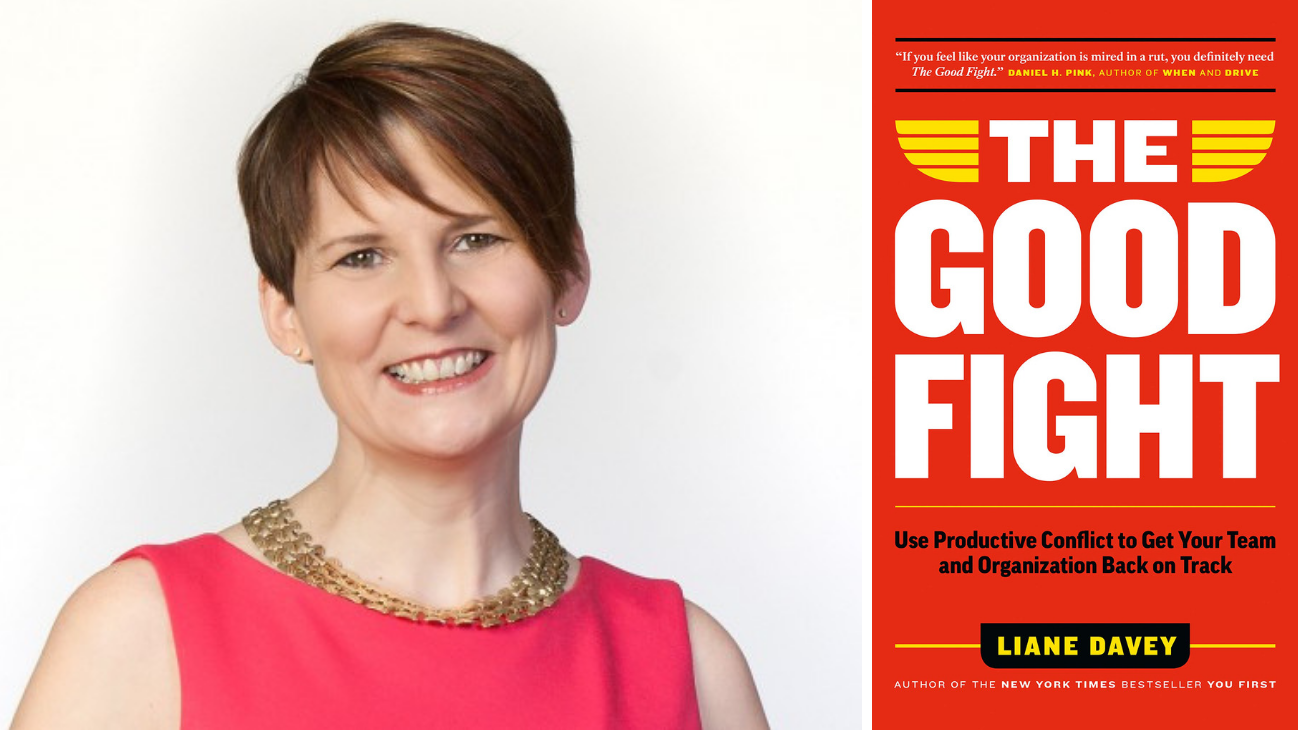Known as the “teamwork doctor” Liane Davey is an expert on building effective teams, improving communication, and increasing leadership effectiveness. A bestselling author, Liane takes on team conflict in her recently published book The Good Fight: Use Productive Conflict to Get Your Team and Organization Back on Track.
In this book, Liane aims to rebuild conflict’s reputation within the workplace. Traditionally viewed as antithetical to teamwork, employee engagement, and a positive company culture, Liane argues that conflict is actually the ally of a productive workplace. Using real-world examples, Liane shares practical tools to help teams handle even the most contentious conflicts in a productive and cooperative manner.
Liane recently wrote an article for the Harvard Business Review giving us a sneak peek into what we can expect from her new book. She gives a brief overview of why conflict avoidance creates more problems than facing it head on, and provides an exercise to help teams feel more comfortable with conflict.
She says:
Avoiding conflict means that you fail to make difficult trade-offs required to prioritize, which leads to overwhelming workloads. Avoiding conflict means tolerating poor performance, which means other employees have to pick up the slack. Avoiding conflict means that it’s not safe to express dissent or frustration, which means stress and resentment build.
Avoiding conflict also builds up conflict debt, which Liane defines as the sum of all undiscussed and unresolved issues that stand in the way of progress. This could range from withholding constructive feedback to continually deferring strategic decisions.
Embracing conflict on the other hand builds diversity of thought, pushes people to think outside of the box, and leads to greater discussion and engagement in work. But, building this type of environment requires leadership to create an expectation that there will be — and should be — conflict, and that’s OK.
Below is an exercise that Liane created to help teams start their productive conflict journey.
You can normalize productive conflict on your team by using an exercise to map out the unique value of each role and the tensions that should exist among them. Here’s how. Draw a circle and divide that circle into enough wedges to represent each role on your team. For each role, ask:
- What is the unique value of this role on this team? What should this person be paying attention to that no one else is? What would we miss if this role wasn’t here?
- On which stakeholders is this role focused? Whom does it serve? Who defines success?
- What is the most common tension this role puts on team discussions? What one thing does the person in this role have to say that frequently makes others bristle?
Answer those questions for each member of the team, filling in the wedges with the answers. As you go, emphasize how the different roles are supposed to be in tension with one another. As you go through the exercise, use examples of contentious issues that your team has been stuck on to illustrate these points. Watch the faces light up as they start to realize how their lack of appreciation for this dynamic has caused many of the arguments and hard feelings on the team. Talk about how you’ll use each of these different perspectives as criteria in your decision making from now on.
Once you go through this exercise, you’ll see that in the vast majority of cases, when presented with all the information, the team will be able to align around a decision. Where they can’t, the most effective path is to defer to the team leader to make a call taking all of the perspectives into consideration
What you’ll discover using this exercise will open up so many great discussions. Use it to address issues such as: someone who is advocating too hard for their narrow point of view; a team member who has stopped adding their unique value and as a result has left the team exposed in some way; an imbalance on a team with multiple incumbents in one role who overpower the single-incumbent roles; performance goals that are misaligned with the best interests of the team overall.
With heightened awareness and a shared language, your team will start to realize that much of what they have been interpreting as interpersonal friction has actually been perfectly healthy role-based tension. They’ll realize that conflict and tensions are not the antithesis of cross-functional teams; they’re one of the main benefits of them. (Or as I like to put it, conflict is a feature, not a bug on teams.)
Having worked with organizations, including Fortune 500 companies, from across the globe helping teams from the frontlines to the boardroom, Liane Davey has developed a unique perspective on the challenges that teams face — and how to solve them.
Her mission is to transform the way people communicate, connect, and contribute, and, using her expertise in strategy and group dynamics, Liane delivers the perfect combination of education and entertainment that leaders and teams need to make an immediate impact on their organizations.
Interested in learning more about Liane and what she can bring to your next event? Email us at [email protected].




